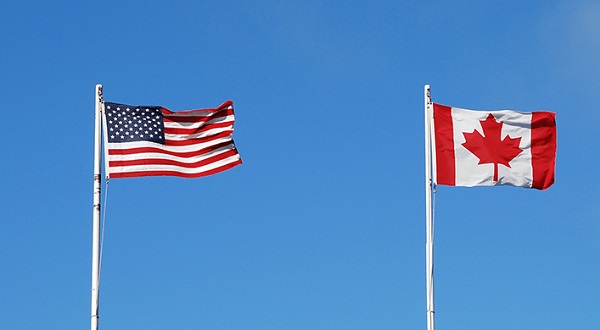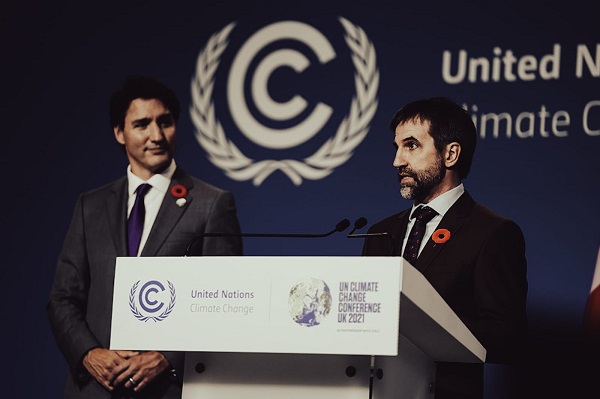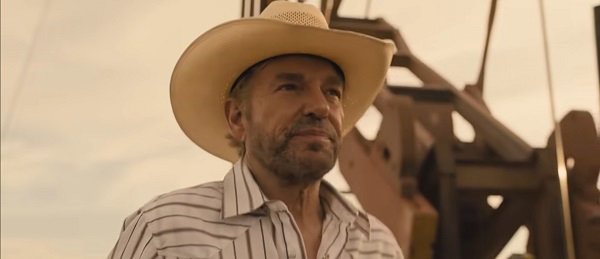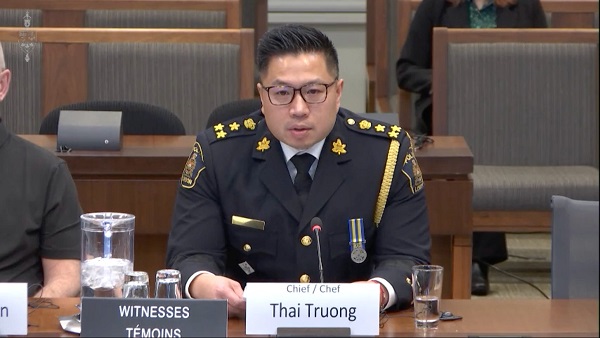Business
TikTok on the Clock: US Appeals Court Hits the “Ban” Button
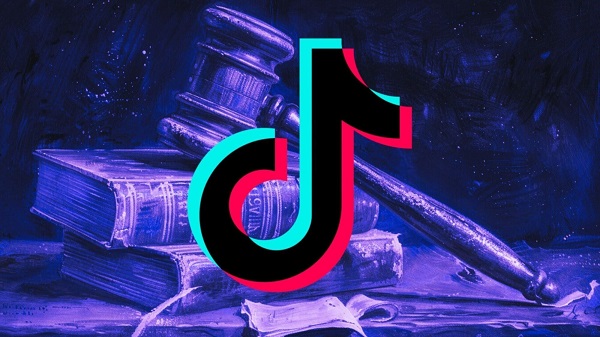
|
The winds of Washington are blowing icy cold for TikTok this December. A federal appeals court panel handed down a ruling today that could send the app packing— or at least force it into a kind of corporate divorce.
The US Court of Appeals for the District of Columbia Circuit has today declared the law threatening TikTok’s existence to be totally constitutional, leaving the platform to fight for its digital life. In short, TikTok has until mid-January to break ties with its Beijing-based parent, ByteDance, or risk an outright ban in the United States. TikTok responded with the following statement: “The Supreme Court has an established historical record of protecting Americans’ right to free speech, and we expect they will do just that on this important constitutional issue. Unfortunately, the TikTok ban was conceived and pushed through based upon inaccurate, flawed and hypothetical information, resulting in outright censorship of the American people. The TikTok ban, unless stopped, will silence the voices of over 170 million Americans here in the US and around the world on January 19th, 2025.” The Free Speech Shuffle TikTok played the First Amendment card, arguing that banning the platform would stomp on Americans’ free speech rights. But the court wasn’t having it, throwing in a little verbal aikido about protecting actual freedom. “The First Amendment exists to protect free speech in the United States,” the court wrote, presumably while straightening its tie in a metaphorical mirror. “Here the Government acted solely to protect that freedom from a foreign adversary nation and to limit that adversary’s ability to gather data on people in the United States.” Translation: TikTok, it’s not you — it’s China. |
 |
|
TikTok has been accused of being influenced by the Chinese Communist Party.
|
|
ByteDance’s Legal Tango
TikTok and its parent company, ByteDance, is already planning to appeal to the Supreme Court because apparently, they’re gluttons for punishment. And hey, why not? When you’re staring down a deadline that could nuke your entire US business, you either fight or fold. But here’s where it gets interesting: the same President-elect Donald Trump who once tried to fire TikTok like it was a contestant on The Apprentice now says he’s against a ban. Trump has promised to swoop in and “save” the platform during his second term. The law itself was signed by President Joe Biden in April, marking a rare bipartisan moment in a town otherwise allergic to cooperation. For years, Washington has been gnashing its teeth over TikTok’s ties to the Chinese government, accusing the app of being a national security threat disguised as a dance challenge factory. Of course, critics argue this is about power. TikTok’s cultural dominance has made it an unpredictable disruptor, threatening not only Big Tech’s grip on social media but also giving the average American teen more clout than your local senator. Government officials argue that the app’s voracious appetite for user data could lead to sensitive information, from browsing histories to biometric identifiers, being vacuumed up by the Chinese communist government. But the main issue? The proprietary algorithm, that magical machine-learning potion that keeps you scrolling at 2 a.m., is painted as a weapon of influence — a subtle but powerful propaganda tool ready to tweak your feed for Beijing’s benefit. Except, there’s a catch: a good chunk of the government’s evidence for these claims is locked behind classified curtains. TikTok’s attorneys — and by extension the American public — are left in the dark. |
 |
|
More than 170 million Americans use TikTok.
|
|
TikTok Fights Back
TikTok has steadfastly denied being a Chinese Trojan horse, insisting that no evidence exists to prove they’ve ever handed over data to Beijing. As for the algorithm? TikTok says any suggestion of manipulation is pure speculation. Their legal team hammered home that the government’s arguments rely on what might happen in the future — a slippery foundation for ripping apart a platform that’s glued to the cultural zeitgeist. But the Department of Justice isn’t just playing futurist. It has hinted — vaguely and ominously — at unspecified past actions by TikTok and ByteDance in response to Chinese government demands. The key word here is “unspecified,” because whatever receipts the DOJ might have, they’re conveniently out of reach for TikTok’s lawyers, the media, or anyone else. A Courtroom Tango: First Amendment vs. National Security The appeals court panel, a politically mixed trio of judges, seemed as torn as the rest of us about how far Uncle Sam can stretch its First Amendment arguments to justify banning an app with foreign ties. Over two hours of oral arguments in September, the judges volleyed tough questions at both sides. Can the government really shut down a platform just because it’s foreign-owned? the judges asked, channeling TikTok’s core argument. On the flip side: What happens if this platform turns into a covert disinformation campaign during wartime? they wondered, invoking wartime-era laws restricting foreign ownership of broadcast licenses. Both sides twisted themselves into legal yoga poses. TikTok’s lawyer, Andrew Pincus, argued that a private company — even one with foreign owners — deserves constitutional protections. The DOJ’s Daniel Tenny countered that the government has a duty to head off potential foreign interference, even if the threat isn’t fully realized yet. $2 Billion in Data Defenses TikTok itself hasn’t just been sitting back while lawyers spar. The company claims it’s invested over $2 billion to fortify its US data, including setting up Project Texas — a heavily marketed initiative to store American user data on servers managed by Oracle. ByteDance has also floated the idea of a comprehensive draft agreement that it says could have eased Washington’s fears years ago. But according to TikTok, the Biden administration ghosted them, walking away from the negotiating table without offering a viable path forward. The DOJ insists the draft didn’t go far enough, but skeptics wonder if the government’s hardline stance is less about national security and more about flexing control over Big Tech. Divestment Drama Washington’s solution to the TikTok dilemma sounds deceptively simple: ByteDance should sell the US arm of TikTok. However attorneys for the company argue that such a divestment would be a logistical and commercial nightmare. And without TikTok’s algorithm—intellectual property that Beijing is unlikely to let go of—the app would lose its magic. Imagine TikTok without its eerily intuitive feed: it’d be MySpace 2.0, a ghost town for millennials waxing nostalgic. Still, some sharks smell blood in the water. Billionaire Frank McCourt and former Treasury Secretary Steven Mnuchin have rallied a consortium with over $20 billion in informal commitments to snap up TikTok’s US operations. TikTok isn’t going down without a fight and it’s bringing allies to the battlefield. The company’s legal challenge has been bundled with lawsuits from several content creators, who argue that losing the platform would gut their livelihoods, and conservative influencers who claim a ban would silence their political speech. TikTok, ever the sugar daddy, is footing the legal bills for its creators — a savvy PR move if ever there was one. The Clock is Ticking If TikTok’s Hail Mary appeal to the Supreme Court fails, it’ll be up to President Trump’s Justice Department to enforce the ban. That means app stores would have to scrub TikTok from their offerings, and hosting services would be barred from supporting it. And what happens to the millions of creators, small businesses, and teenagers who’ve turned TikTok into a cultural juggernaut? Well, they’ll probably migrate to Instagram Reels or YouTube Shorts—platforms that coincidentally happen to be owned by US tech giants who’ve been salivating at the thought of TikTok’s demise. This is far from over. |
|
If you value free speech and privacy, subscribe to Reclaim The Net. Each issue we publish is a commitment to defend these critical rights, providing insights and actionable information to protect and promote liberty in the digital age.
Despite our wide readership, less than 0.2% of our readers contribute financially. With your support, we can do more than just continue; we can amplify voices that are often suppressed and spread the word about the urgent issues of censorship and surveillance. Consider making a modest donation — just $5, or whatever amount you can afford. Your contribution will empower us to reach more people, educate them about these pressing issues, and engage them in our collective cause. Thank you for considering a contribution. Each donation not only supports our operations but also strengthens our efforts to challenge injustices and advocate for those who cannot speak out.
Thank you
|
Business
Argentina’s First Budget Surplus in 123 Years

Argentina has posted its first budget surplus in 123 after President Javir Milei took office and demanded an abrupt halt to government spending. Governments worldwide should carefully take note.
Milei proudly announced:
“The deficit was the root of all our evils — without it, there’s no debt, no emission, no inflation. Today, we have a sustained fiscal surplus, free of default, for the first time in 123 years. This historic achievement came from the greatest adjustment in history and reducing monetary emission to zero. A year ago, a degenerate printed 13% of GDP to win an election, fueling inflation. Today, monetary emission is a thing of the past.”
Economic emissions should become a coined phrase as it is far more harmful than anything government is currently trying to conquer.
Argentina was forced to stop printing money back in 2022 after inflation surpassed 60% in July of that year, and their currency became utterly worthless. The central bank raised rates to nearly 70% to no avail as government continued borrowing. The problem with socialism is that they eventually run out of other people’s money. The government was spending over $6 million daily on social programs, but the poverty rate continued to rise, and around 57% of the working population could not find jobs. There were mass strikes since their money could not fund basic goods. Even if they could find employment, what incentive would the people have when the currency is worthless? Since they had no way to pay off their debt, the government simply continued to print more and devalued its own currency in the process.
Javir Milei was called a right-wing extremist for denouncing socialism and promising to curtail government spending and social programs. He understood that socialism COULD NOT WORK. It took President Javier Milei of Argentina a mere two months to push his nation into a surplus. The Economy Ministry declared that the government posted a $589 million surplus back in April, the first surplus in a decade. Milei referred to the government as “a criminal organization,” and recognized that the public sector needed to shrink as 341,477 people were on the government payroll when he took office.
Referred to as the “gnocchi” after the Italian pasta dish that is commonly served on the 29th of the month, the same day as payday, are the individuals in Argentina on the government payroll who do absolutely nothing. They were installed by politicians in exchange for favors. Critics claim he is firing at random, but the Milei Administration has assured the public that selecting those who will be laid off will be an “extremely surgical task, done so as not to make mistakes.”
Milei has already eliminated useless agencies such as the Ministry of Culture, Ministry of Health, Ministry of Labor, and Ministry of Social Development. In his words, Argentina is currently a poor country and cannot afford these departments that do absolutely nothing to improve the nation’s economic conditions. He has cut the Cabinet in half and no one has noticed a difference.
Milei removed price controls and devalued the currency by 54%. Transport and fuel subsidies were eliminated. It was noted that these measures would at first hurt PPP before the economy could begin to heal. Imagine inflation cooling in February at 276% — the situation was dire. The International Monetary Fund awarded Argentina a $44 billion credit program. The nation is beginning to stabilize very slowly, and it took decades of deteriorating economic conditions for someone to come in and clean house.
He has called his measures a form of “shock therapy” for Argentina’s economy. Milei agreed to devalue the nation’s peso from around 350 to 800 pesos per USD. He has eliminated quotas on imports and exports and removed the licensing that was difficult to obtain. There is a temporary rise in taxes for non-agricultural trade that brings it on par with industry standards. Transportation and energy subsidies have been eliminated.
Milei is the same man who stood before the crowd at Davos and criticized their glorification of socialism. “The main leaders of the Western world have abandoned the model of freedom for different versions of what we call collectivism,” Milei said to a hostile crowd at Davos. “We’re here to tell you that collectivist experiments are never the solution to the problems that afflict the citizens of the world—rather they are the root cause.”
Those in charge want us to believe that capitalism equates to greed while collectivism is seen as a form of social justice but, of course, requires the money of others. Free enterprise is under constant attack, and Milei is one of the only world leaders fighting for its existence. “Social justice is not just. It doesn’t contribute to the general well-being,” Milei said to Davos, citing that socialism is “intrinsically unfair” and forces the state to attack the people for taxes. “Can any of us say that they voluntarily pay taxes?” he asked the crowd.
He was once called the Donald Trump of Argentina. We can hope that Donald Trump will take swift action to reduce government spending. DOGE appointee Elon Musk congratulated Argentina’s president when news of the budget surplus broke. Unfortunately, America is too far in the hole to recover by slashing programs or cutting government. It would be a massive step forward but our deficit has been permitted to run wild for too long to be tamed.
Business
Economics professor offers grossly misleading analysis of inequality in Canada
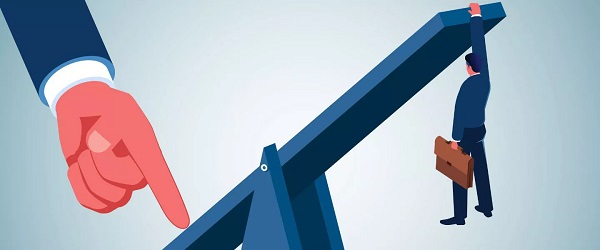
From the Fraser Institute
By: Philip Cross
Dalhousie economics professor Lars Osberg’s The Scandalous Rise of Inequality in Canada was published just in time to be eligible for the always hotly-contested title of worst Canadian economics book of the year.
Osberg’s central theme is that inequality in Canada has been steadily increasing and this poses a threat to economic growth, financial stability, social mobility, limiting climate change and even democracy—at times, it seems every imaginable problem is blamed on inequality. This makes it even more important to get the facts about inequality right.
The most misleading chapter in the book concerns top-income earners. Osberg claims that “the income share of the top 1 per cent… is the aspect of inequality that has changed the most in recent years.” However, the chapter on inequality at the top of the income distribution exclusively features data for its increase in the United States, driven by the outrageous success of technology firms such as Facebook, Apple, Alphabet, Microsoft and Nvidia. Nowhere is the data for Canada cited, but in fact the 1 per cent’s share of income in Canada has fallen since 2007, which probably explains why Osberg avoided it.
The real problem with Canada’s high-income earners over the last two decades is not that they’re gobbling up more income at the expense of everyone else, but that we do not have enough of them. Nor do the top 1 per cent in Canada earn nearly as much as in the U.S. Pretending that incomes in Canada are as skewed as in the U.S. is another example of importing narratives without examining whether they are applicable here. This might be forgivable for the average person, but it’s scandalous and disingenuous for a professor specializing in income distribution.
Raising taxes on the richest 1 per cent has a “populist” appeal. However, former finance minister Bill Morneau wrote in his memoire Where To From Here: A Path to Canadian Prosperity that he came to “regret supporting the idea of a tax increase on the 1 percent” because “it began a narrative that made it difficult to have a constructive dialogue with the people prepared to invest in research and development to benefit the country… our proposal’s biggest impact was to reduce business confidence in us.” Before becoming the Trudeau government’s current finance minister, Chrystia Freeland acknowledged that “many of the ultra-high net-worth individuals flourishing in today’s global economy are admirable entrepreneurs, and we would all be poorer without them.”
Another practical consideration for Morneau was that “Canada’s personal income tax rates are not competitive with the U.S. where highly skilled labour is concerned.” Finally, Morneau acknowledged that taxing the rich in Canada will not raise much money, because “the number of taxpayers affected will be quite small… the math just doesn’t work.” I calculate that confiscating all of the income the 1 per cent earn above $200,000 would fund total government spending in Canada for a paltry 44.2 days.
Besides misrepresenting the importance of Canada’s 1 per cent, Osberg twice makes the patently false claim in his book that “income from capital… is roughly half of GDP in Canada.” Just last week, Statistics Canada’s estimated labour income’s share of GDP was 51.3 per cent while corporate profits garnered 26.0 per cent (including profits reaped by government-owned businesses through their monopolies on utilities, gambling and alcohol sales). Another 12.6 per cent of GDP was mixed income earned by farmers and small businesses, which StatsCan cannot disentangle between labour and capital. The final 10.2 per cent of GDP went to government taxes on production and imports, which clearly is not a return on capital. I would expect undergraduate economic students to have a better grasp of the distribution of GDP than Osberg demonstrates.
Among the many evils generated by inequality, Osberg cites democracy as “threatened by the increasing concentration of wealth and economic power in Canada.” Osberg must believe Justin Trudeau’s decade-long tenure as prime minister reflects the choice of our economic elites. If so, they have much to answer for; besides steadily-degrading Canada’s economic performance and international standing, Trudeau attacked these same elites by raising income taxes on upper incomes, increasing the capital gains tax, and undercutting the fortunes of the oil and gas industry on which much wealth relies. If our economic elite really controls government, it seems they made an incredibly bad choice for prime minister.
-

 Christopher Rufo2 days ago
Christopher Rufo2 days agoAmerica’s Verdict
-
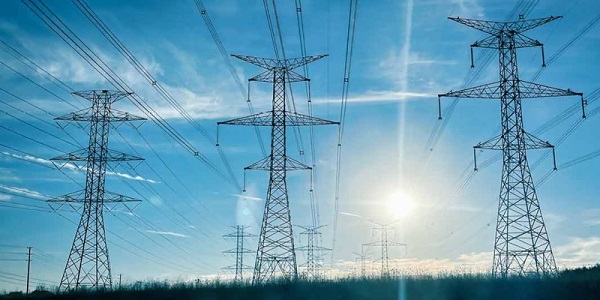
 Alberta2 days ago
Alberta2 days agoProvince “rewiring” Alberta’s electricity grid for growth
-

 International2 days ago
International2 days agoRussiagate Remnants
-

 COVID-192 days ago
COVID-192 days agoIs FDA ‘covering for Pfizer’? Court orders agency to release a million more pages of COVID vaccines documents
-
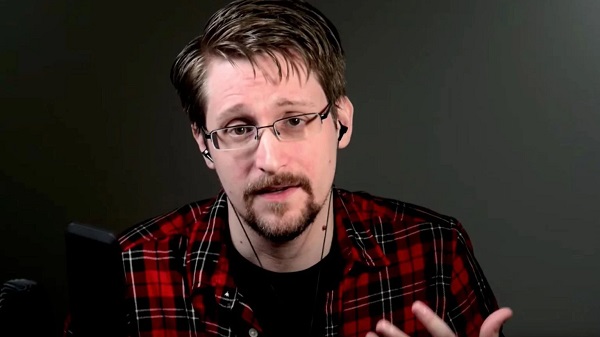
 Censorship Industrial Complex2 days ago
Censorship Industrial Complex2 days agoWill Trump’s Second Chance Bring Justice for Edward Snowden?
-

 National1 day ago
National1 day agoCanadian mayor has bank account garnished after standing up to LGBT activists
-
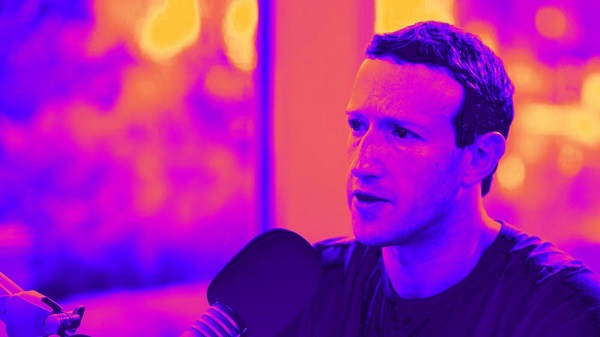
 Censorship Industrial Complex1 day ago
Censorship Industrial Complex1 day agoMeta’s Re-Education Era Begins
-
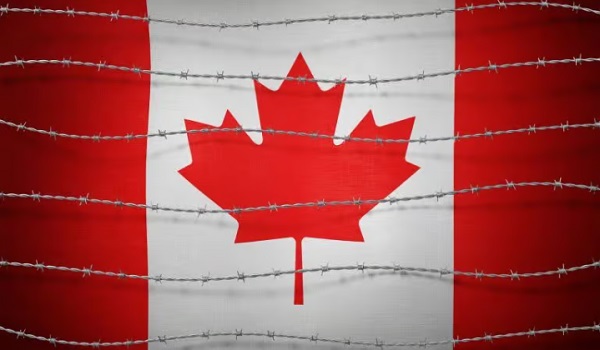
 Brownstone Institute1 day ago
Brownstone Institute1 day agoFreedumb, You Say?





